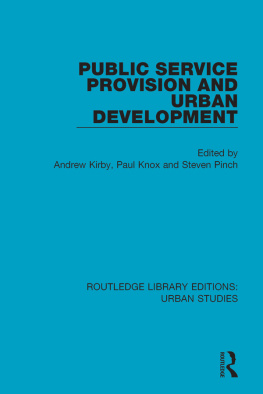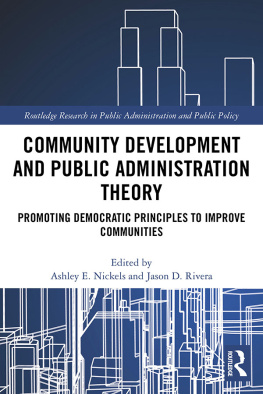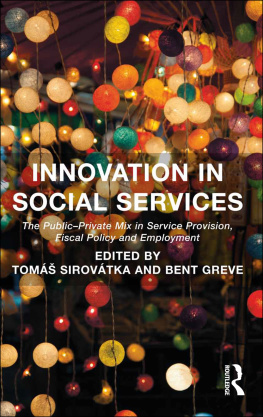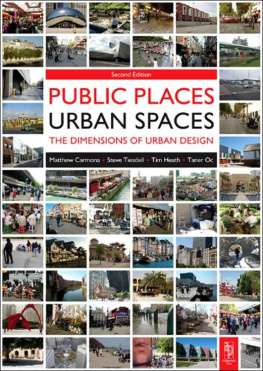First published in 1984 by Croom Helm Ltd.
This edition first published in 2018
by Routledge
2 Park Square, Milton Park, Abingdon, Oxon OX14 4RN
and by Routledge
711 Third Avenue, New York, NY 10017
Routledge is an imprint of the Taylor & Francis Group, an informa business
1984 A. Kirby, P. Knox and S. Pinch
All rights reserved. No part of this book may be reprinted or reproduced or utilised in any form or by any electronic, mechanical, or other means, now known or hereafter invented, including photocopying and recording, or in any information storage or retrieval system, without permission in writing from the publishers.
Trademark notice: Product or corporate names may be trademarks or registered trademarks, and are used only for identification and explanation without intent to infringe.
British Library Cataloguing in Publication Data
A catalogue record for this book is available from the British Library
ISBN: 978-1-138-89482-2 (Set)
ISBN: 978-1-315-09987-3 (Set) (ebk)
ISBN: 978-1-138-05035-8 (Volume 14) (hbk)
ISBN: 978-1-315-16877-7 (Volume 14) (ebk)
Publisher's Note
The publisher has gone to great lengths to ensure the quality of this reprint but points out that some imperfections in the original copies may be apparent.
Disclaimer
The publisher has made every effort to trace copyright holders and would welcome correspondence from those they have been unable to trace.
Public Service Provision and Urban Development emerged in 1984 from an era of economic distress, urban riots, andmore significantlythe onset of a new politics. The nascent Reagan-Thatcher axis emphasized a remaking of the state and its welfare obligations, a loosening of regulatory controls, and a pushback against unions. It was also a period of a re-defined localism that emphasized urban social movements and the emergence of a new identity politics organized, in place, around ethnicity, gender and sexuality (Castells, 1983).
Whether consciously or otherwise, the contributions to Public Service Provision and Urban Development were grappling with the big picture and especially the role of services like health care and education in providing opportunity and justice. One of the recurrent themes of the volume is the limitation of structuralist explanations. Then as now, it has been argued that Marxian theories of hegemony have problems in linking top-down ideological projects (formerly the postwar settlement that had seen the creation of welfare states, the ascendance of progressive city planning and the pursuit of social justice; now, neoliberalism and the ascendance of free-market principles) with the small scale everyday changes in attitudes and practices of ordinary people that can bring about social change (Barnett, 2005). The overwhelming political question posed by neoliberal perspectives is how do people submit to processes that are seen as against their own interests. Barnett sees recent restructuring as a response to populist liberal tendencies such as changing consumer preferences, the decline in deference and a growing awareness of difference. Others have pointed out that in lieu of the hollowed-out social programmes of the postwar settlement there has emerged a discourse on the importance of resilience, in which the emphasis is on individual adaptability, self-reliance and responsible decisionmaking (Hudson, 2010). In the new orthodoxy, cities and local communities had to become responsible, resilient and entrepreneurial.
Looking back at this set of papers on the theme of public service provision delivered in June 1982, one cannot avoid being struck by the scale of changes that have taken place in this sphere in the last thirty years. Although it anticipated the growth of the New Right, Public Service Provision and Urban Development contains little or no mention of privatization, contracting out, de-municipalization or the panoply of other changes in the delivery of public service provision in recent years. In addition, there is scant attention to what are variously termed the voluntary, not-for-profit or third sectors, together with the worldwide growth of social enterprisesfirms that trade for a social purpose.
Public Service Provision and Urban Development was received as well as any collection of conference papers, with the usual observations about varied content. Despite the promotion of an agenda for future work, the postmodern turn (hailed by Jameson in the same year) served to limit interest in empirical work on mundane things such as school catchments and access to health care, emphasizing instead the role of services in constructing the social worlda very different and in many ways more compelling set of issues. The attenuation of local autonomy under neoliberalism has shifted the research focus away from specifically urban contexts, as has the utterly changed meaning of access in a world where many services are provided via digital rather than physical means. Nevertheless, the book still has much to offer the contemporary reader. In a world of sharpening inequality, the importance of public service provision is arguably more important than ever.
In this context a key lesson from Public Service Provision and Urban Development is the value of a multidisciplinary approach. With contributions from geographers, planners, political scientists and sociologists, the volume offered an unusually rich collection of viewpoints and demonstrated the merit of detailed empirical work integrating a plurality of perspectives. The contributors remind us that beneath the smokescreen of political rhetoric there remain a plethora of factors including urbanization imperatives, lobby groups, legal restrictions and vote-buying exigencies that affect outcomes in public policy. The volume's underlying theme of the tensions between policies to promote political legitimacy and those to promote economic efficiency are still evident in a world that has been transformed by neoliberalism and now seems likely to be driven increasingly by the populism that has been manifest in the election of Donald Trump as US President, the UK's vote to leave the EU (Brexit) and the rise of various right wing anti-immigrant movements in Europe.
References
Barnett, C. (2005) The consolations of neoliberalism. Geoforum 36, 712.
Castells, M. (1983) The City and the Grassroots: A Cross-Cultural Theory of Urban Social Movements. Berkeley: University of California Press.
Hudson, R. (2010) Resilient regions in an uncertain world: wishful thinking or a practical reality? Cambridge Journal of Regions, Economy and Society, 3, 1125.
The Editors
AKArizona State University
PLKVirginia Tech
SPUniversity of Southampton
Public Service Provision
and Urban Development
Edited by
ANDREW KIRBY, PAUL KNOX and STEVEN PINCH
CROOM HELM
London & Canberra
ST. MARTIN'S PRESS
New York












